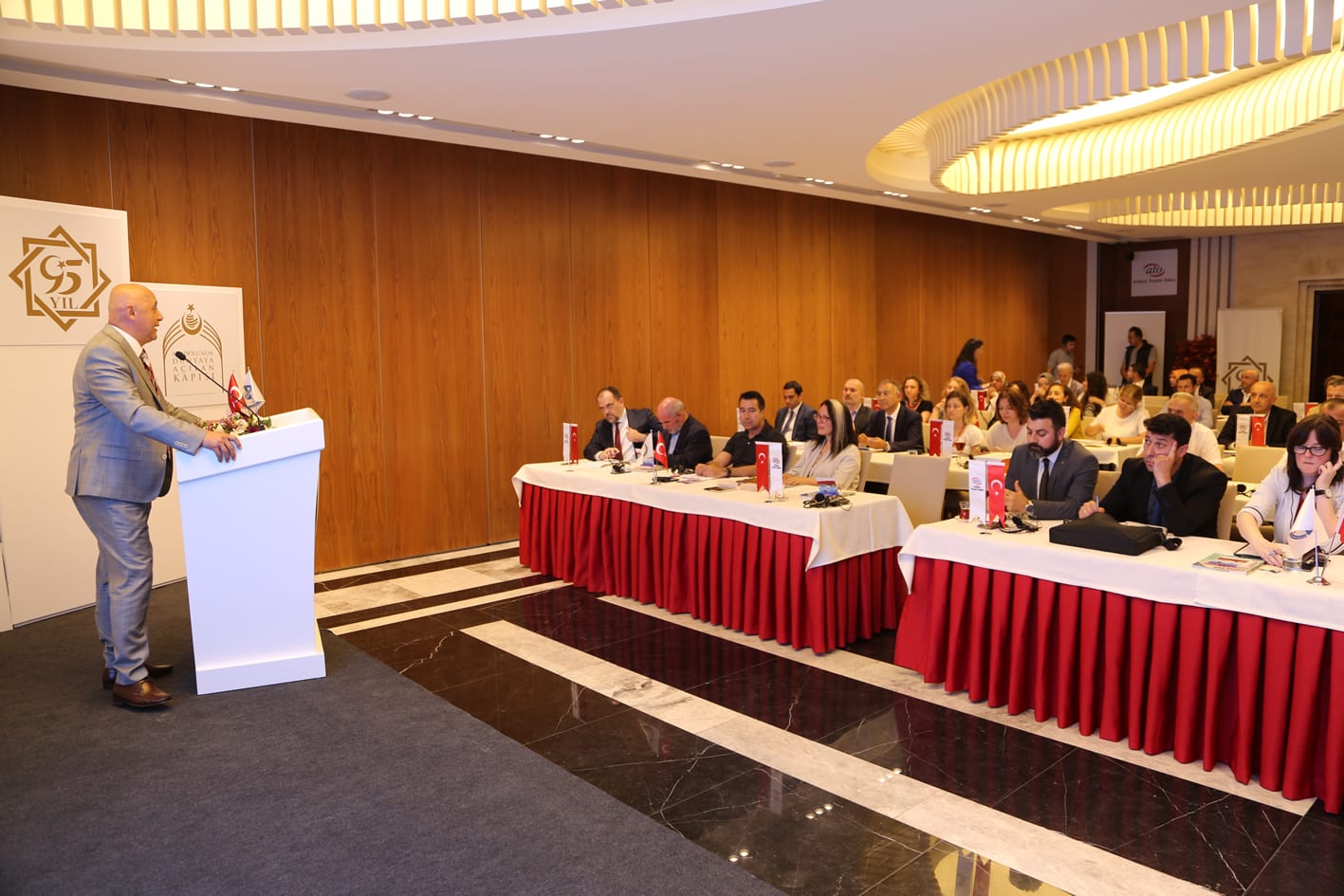
The Turkish Feed Association organized a workshop, “Development in Biotechnology - LLP and Trade” on June 14 in Ankara, Turkey with the collaboration of the Ankara Chamber of Commerce. Ministry of Agriculture and Forestry officials, representatives of non-governmental organizations, academicians, and sector stakeholders of the feed industry attended the workshop. USSEC’s participation in this biotech workshop was very important because Turkish biotech rules will soon be changing, and so USSEC’s contribution and support to the industry will be very important for U.S. soybean exports to Turkey.
USSEC Senior Director – Market Access Roz Leeck was a featured speaker, along with Önder Matlı from Matlı Feed Company; Krista Thomas from the Canadian Council of Grain; and Cecilia Julia Llabres from Argentina’s Ministry of Agriculture. Discussions included advances in biotechnology; world and Turkish perspective on the use of biotech crops in world practice concerning the approval of transgenic products; problems caused in world trade of approval at different times in different countries of these biotech crops; and recommendations concerning solutions.
Turkish Feed Association president M. Ulku Karakus opened the workshop, together with an official from the Ministry of Agriculture and Forestry. Mr. Matli, as an industry representative, spoke about the current situation and problems and solutions regarding biotech in Turkey. Mr. Matli explained that feed raw materials used in Turkey are largely imported and the production of feed materials cannot catch up with the speed of growth of the feed industry. In 2018, Turkey estimated feed raw material imports at $3.8 billion. Mr. Matli stated that soybeans have an important share in the world oilseed trade and soybean production in the world is highly transgenic. Trading of raw materials poses a risk because more than 60 percent of the imported raw materials are transgenic products and the number of approved transgenic products is low.
He stated that there were problems in approval applications due to current legislation, that demurrage payments increased due to the low level of the presence of unapproved products in shipments, and lawsuits were even opened against those concerned. Mr Matli said that the adoption of approved transgenic products in the European Union in Turkey and the harmonization of the legislation with the EU might be a solution for eliminating these problems.
Ms. Leeck shared that in 2017, the global planting area of biotech crops increased by 3 percent compared to 2016, reaching 189.9 million hectares in 24 countries. The 5 largest producers of biotech products in terms of planting area are the United States, Brazil, Argentina, Canada, and India.
Thus far, herbicide and insect resistant products have been used, and in the future there will be an increase in the demand for products with multiple properties rather than a single feature. Ms. Leeck also stated that most of the 40 applications pending approval by the European Food Safety Authority (EFSA) are stack products.
In 2017, added Ms. Leeck, 17 million farmers, 95 percent of whom live in developing countries, stated that they planted biotech crops. Since 1992, 4133 approvals have been issued for 26 biotech crops in 67 countries worldwide, of which 1995 are for food, 1338 for feed, and 800 for planting; the highest approval for corn is the herbicide tolerant NK603 maize variety.
All the speakers gave an overview of production and trade of biotech commodities, international approvals for biotech commodities and economic impact of LLP in trade; the status of Turkey’s imports and utilization of bulk commodities and international norms for commodity trade; problems faced during international trade; the process for commercializing biotech events and what new events are on the horizon; and the scope of LLP Coalition Policy Model and which countries are involved. These topics were discussed to inform the participants about biotech and its developments.

